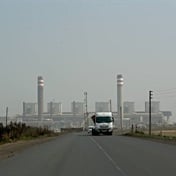
South Africa’s economy is in bad shape on almost all macroeconomic indicators.
At 29%, unemployment is the highest since 1994.
According to the Institute of International Finance, government’s debt to GDP ratio is currently 59.3%, teetering close to the 60% red zone.
In 2007, the ratio was 27.1%. Anything around and above 60% is considered unsustainable.
GDP growth, projected at 0.6% this year, is lower than population growth.
We are fighting tooth and nail not necessarily to improve our rating, but, at most, to convince Moody’s Investors Service – the last ratings agency that has us above junk status, albeit by just one notch – to keep us there.
Although the current administration has worked to stabilise the turbulence, efforts have been largely reactive – a firefighting effort of sorts – from organising a jobs summit to taking several international trips in search of foreign investment.
I know that the economy is not a speedboat – it works more like an aircraft; it takes time, skill and patience to turn around.
Notwithstanding, I took issue with what exactly the jobs summit would achieve.
I argued then that jobs were not created because the captains of industry had been asked to do so by the country’s chief executive, or because unemployment was high.
Jobs are created because the conditions for business growth and expansion exist.
The priority for businesses has never been to create jobs, but to create wealth. In the process of expansion, they employ more people to achieve the wealth creation goal.
There are more effective ways to generate employment and improve growth, and lessons from recent history might point us in the right direction.
Between 1996 and 2007, there was a national economic discourse that manifested in raging conversation about what policies would deliver the promise of development.
The battle lines were clear, as was the policy direction, from the leftist Reconstruction and Development Programme to the neoliberal Growth, Employment and Redistribution policy.
In the early 2000s, we debated on the pro-growth versus pro-poor outcomes of development interventions.
The debate involved defence of ideological positions from labour, business and government.
The consequence of such policies (and debates) was that unemployment rose from 20% in 1994 to 27.2% in 2002, before steadily declining to 23.2% in 2007.
Between 2007 and last year, by taking a political turn, we lost the economic conversation.
Still, even under the new dawn, proper national debate on economic policy has not gained momentum, although some dim lights are visible.
It is certainly refreshing to read Finance Minister Tito Mboweni’s proposition for an economic strategy, titled Economic transformation, inclusive growth and competitiveness: Towards an Economic Strategy for South Africa.
It is also commendable that the citizens are given an opportunity to express their views.
This is a welcome return to economic conversation.
Mboweni’s strategy makes a case for the following four pillars:
- Modernising network industries to promote competitiveness and inclusive growth;
- Lowering barriers to entry and addressing distorted patterns of ownership through increased competition and small business growth;
- Prioritising labour-intensive growth: agriculture and services; and
- Implementing focused and flexible industrial and trade policy to promote competitiveness and facilitate long-run growth.
In theory, the strategy makes a reasonable prognosis of how the economy can turn upward not only faster, but also in an inclusive way.
Notwithstanding, I would like to suggest two critical points for public debate, which would enrich the proposed strategy.
First, the concept of “inclusive growth”. The document repeats this term (and its variants) 43 times.
What this means is that the growth we aim for should deliver both jobs and wealth. Getting labour-intensive growth through agriculture and services is highly unlikely.
In the age of the fourth industrial revolution, agriculture will have to move with the technologies of our times, and the tourism sector is highly volatile and exposed to external shocks beyond national control.
To expect mass employment from a technology-intensive agricultural sector and an unpredictable tourism sector is to expect miracles.
Historically, rapid and sustained industrialisation holds better employment promise.
Second, we’ll need to hold meaningful conversations about the type of state capable of delivering inclusive growth.
The first, third and fourth pillars assume a form of dirigisme – a strong state directly involved in economic and social development.
The fear of emerging nationalisms makes it extremely difficult to model after the Asian Tigers of Hong Kong, Singapore and Taiwan that delivered rapid industrialisation between the 1960s and 1990s.
But, given that the current poor economic performance is a direct consequence of a poorly governed dirigisme, are we not expecting the unreasonable by assuming that the same state will deliver inclusive growth – and rapidly?
State reform is thus an overdue conversation.
Musyoka is an associate researcher (development economist) at the Centre for the Advancement of Scholarship at the University of Pretoria




 Publications
Publications
 Partners
Partners








